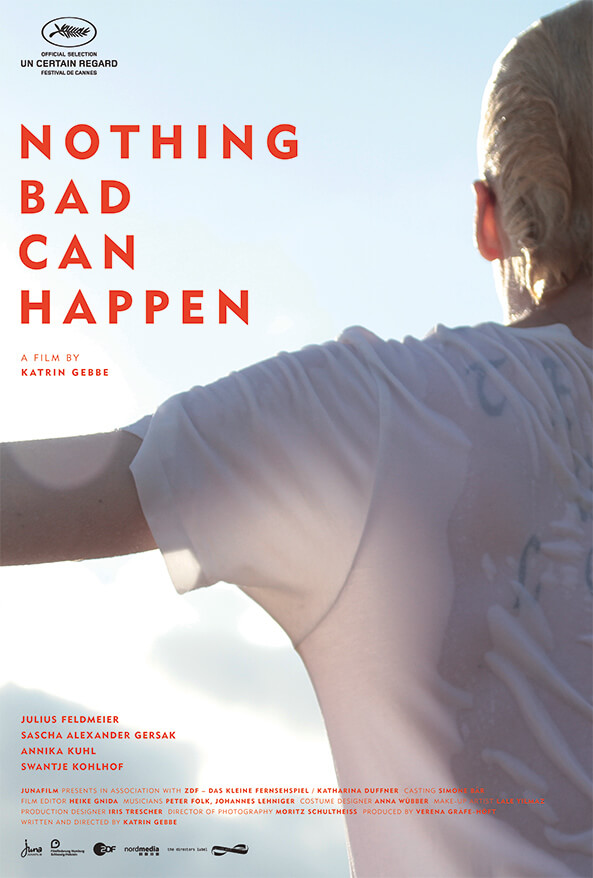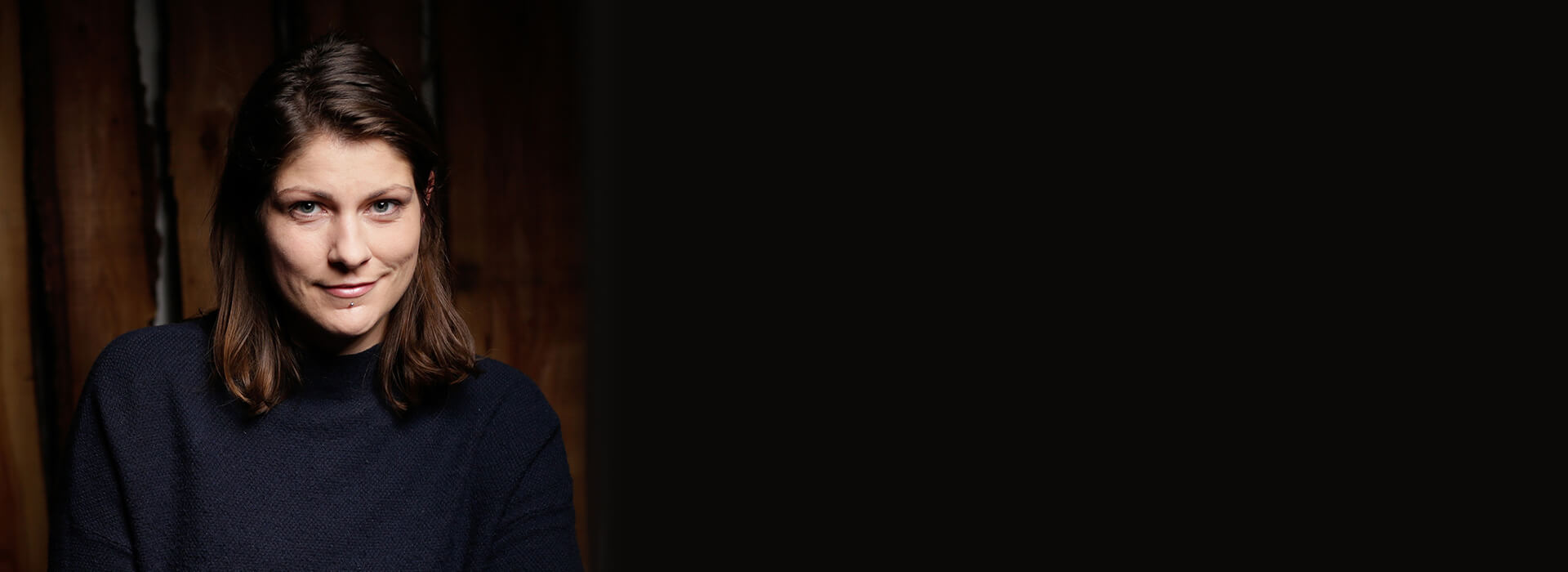A PORTRAIT OF DIRECTOR KATRIN GEBBE
(photo © Katrin Gebbe)Katrin Gebbe seems completely relaxed during our interview at a café in Hamburg-Altona. That is not only astonishing because outside the Christmas rush is in full swing already, with people busy drinking mulled wine and frantically shopping for gifts. Above all, it seems surprising because Gebbe is actually under considerable pressure working to complete her new film PELICAN BLOOD, and you might expect her to be suffering from extreme cutting-room stress. But things often happen a little differently around the 35-year-old director, making her stand out among her colleagues.
It is six years ago now that Gebbe made a name almost overnight, not only within the German film scene but on the international stage as well. That was when the Berlinale rejected her debut film NOTHING BAD CAN HAPPEN; however, this emerged as a blessing for the director, who was born in Ibbenbüren in North Rhine-Westphalia but chooses to live in Hamburg. For ultimately, she was able to enjoy the film’s world premiere a few months later in the section Un Certain Regard at the Festival de Cannes. The film industry could hardly cover its amazement: a German director whose name was largely unknown, even to insiders, presenting a debut film on the Croisette, and in addition this film – with its radical, disturbing story about the world of Jesus Freaks – did not fit into any category that we tend to associate with German cinema? No one was expecting that. Least of all Gebbe herself, of course, who had completed a post-graduate course in Direction at Hamburg Media School after studying Art at the Academy of Visual Arts in Enschede.
The making of NOTHING BAD CAN HAPPEN was a long and difficult process, whereby she and producer Verena Gräfe-Höft met with constant opposition from the usual funding institutions when the latter encountered the remarkable story and the makers’ similarly unusual narrative approach. To add to their difficulties there was the fact that, in Gebbe’s own words, she did not belong “to any of the cliques in the German film world. At the most, you could say I belong to a generation of German filmmakers who are attempting something a bit new and different,” the go-it-alone director explains. “Those who don’t fit into existing groups like the Berlin School or the more conventional narrative cinema, but consciously take risks and follow a path that is totally their own.” She does not see herself as being alone in the wilderness in this role. “But naturally we don’t meet every few weeks and moan about our lot, either.”

For a year after the Cannes premiere Gebbe travelled around the world and presented NOTHING BAD CAN HAPPEN – which later received the German Film Critics’ Prize and was nominated for the German Film Award – at festivals in Karlovy Vary, Zurich and Göteborg, for example. “I enjoyed reaping the reward for my work so much, particularly because the production of the film had been so difficult,” she notes, and likes to remember in particular the screening at the Fantastic Fest in Austin, Texas. “It wasn’t about the critics there, or intellectual movie buffs; in the main, they were genre and horror fans. When Elijah Wood came rushing up to me after the screening, at first I couldn’t believe it was me he wanted to speak to. But in fact he just wanted to say how enthusiastic he was about the film. It’s very special to get to know people who think the same way, people like him, at such festivals.”
However, this did nothing to change her position as an outsider in her home country. Initially, she rejected the customary opportunities to make TV crime dramas offered to up-and-coming directors, before finally bringing herself to try one episode of TATORT at least. It wasn’t exactly an ecstatic experience, according to Gebbe, but that also had a positive aspect: “It was perhaps a good thing that my TV career wasn’t a huge success from the word go, as people can quickly start to feel too comfortable in that field. And then suddenly you lose sight of your second cinema film.”
Instead, she preferred to keep the experiences gathered in Cannes and other festivals in the back of her mind – and direct her eyes towards the horizon beyond the German borders. At the latest, it was a grant for the Villa Aurora in Los Angeles that triggered Gebbe’s desire to work internationally as well: she was so enthused by the “excitement at trying something new and the energy” that she encountered among American producers there. And even in the final stages of pregnancy she refused to turn down an offer from Tim League, who had introduced NOTHING BAD CAN HAPPEN to US cinemas with Drafthouse Films, to contribute a short film to his world-wide horror anthology THE FIELD GUIDE TO EVIL, which was premiered at the SXSW festival.
PELICAN BLOOD – although back under the aegis of Gräfe-Höft’s company Junafilm – is again the outcome of networking that consciously extends beyond Gebbe’s own personal sphere and the confines of Germany. Her invitation to the Torino Film Lab, with its workshops distributed over a full year, not only brought welcome input from industry consultants from all over the world, but also earned her film world sales as well as a German distributor even before the start of shooting. The story – featuring a top-class cast including Nina Hoss as a horse trainer who is fighting desperately for her adopted daughter – was made for the most part in Bulgaria, involving the local film company Miramar Film, whose producer Mila Voinikova had been invited to participate in the EFP’s Producers on the Move in Cannes alongside Gräfe-Höft in 2017.
This time, as far as German funding and support are concerned it has been much easier than it was for NOTHING BAD CAN HAPPEN, Gebbe tells me as we are saying good-bye. But she quickly adds: “I still can’t claim that everyone cried out hurrah, though.” However, she is not going to let herself worry about that, or stray from her intended path as a result. On the contrary: the prospect of finishing work on PELICAN BLOOD in time for a potential Cannes premiere immediately conjures a broad smile of anticipation to her face.
Patrick Heidmann

